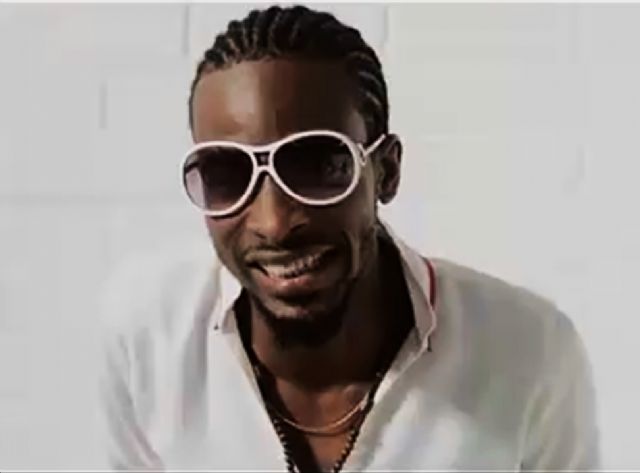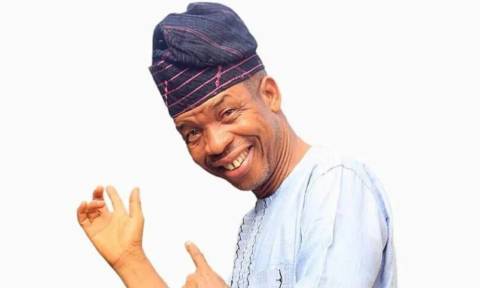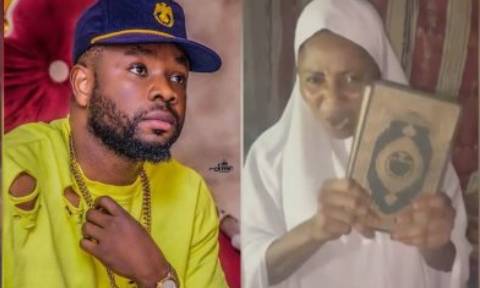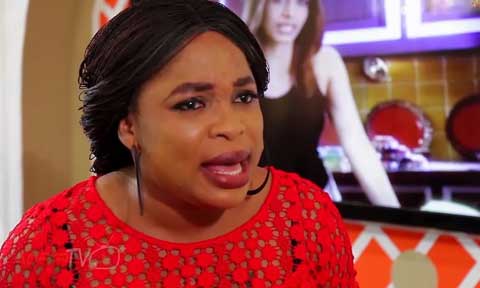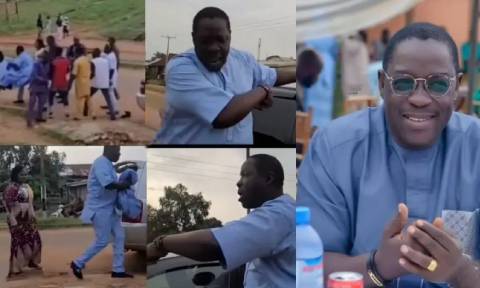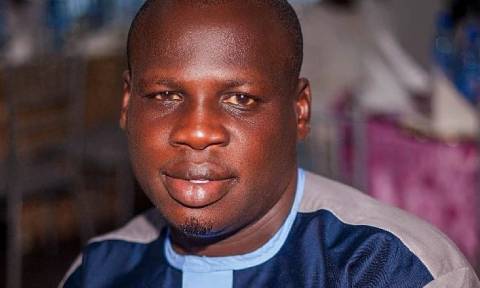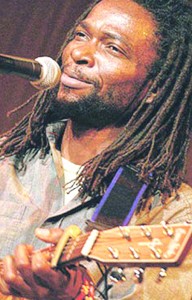
Veterinary doctor turned musician, Segun Akinlolu, better known as Beautiful Nubia, recently hosted a musical event in Ile-Ife which attracted big names in the media. He spoke after the show.
Excerpt
How did you come about the name, Beautiful Nubia?
Nubia
Nubia was a kingdom in Africa whose leaders were so powerful that they were considered to be leaders of the world. This was about 3000 years ago. I used this name to remind my audience that people like us were once innovators and global leaders in the areas of philosophy, economics and science, and that perhaps, if we could learn to love ourselves and work together, we can get to that position of prominence in life.
Why did you study Veterinary Medicine. Was it by choice or condition?
I was a very brilliant student, excelling in the arts and the sciences, but I always wanted to play music and write. Luckily, I was convinced by my mother and teachers that I needed to learn a trade or a skill to make me a better person. And, today, I am happy I listened to those voices of wisdom – studying veterinary medicine and working for years as a veterinary doctor has made my music career an easier path to tread.
But you are not practicing what you studied?
Education in any form is never a waste. Also, note that university education is a means to an end, not an end in itself. I still practice as a Vet doctor. I still provide consultancy services to people on veterinary-related issues though not as much as I used to do. I am a very dynamic person, I have always been a multi-dimensional character. So, I can be a Vet. doctor when I need to be and an artiste when I need to be.
Will you say your music is paying off?
People in Nigeria always ask me this question as if it is impossible to survive doing music alone. But if your needs are very small, why not? I grew up sleeping on a mat and bare floor, so I am not a stranger to frugal living. Hence, if I make any money, I know how to manage it. The problem with a lot of our people is that they cannot manage a little fund. I don’t make a lot of money from music, whether in Nigeria or abroad, but I live within my own means and manage my funds very well. My fans sends me profound messages about how my music is inspiring them and making their lives better. That for me is more fulfilling than money.
Some People still find it difficult catagorise your genre of music
It’s folk and roots music. People ask me, ‘What kind of musician are you?’ I tell them I am a folk and root musician, because my music is contemporary folk music. It is message-driven and a reflection of the major music genres that a lot of us celebrate, such as rock, R&B, reggae, soul, jazz, etc. The problem with Africans is that we tend to define our music like the western people. We don’t appreciate the kind of music we play here.
Did you do some research before coming up with the message in your songs?
No. I started writing songs when I was nine years old. That’s about 30-plus years back and I can say I have become an expert of sort. What we are doing cannot be divorced from what has been done in the past. Anybody who says he is a music creator is not telling the truth. What we do is borne out of the things we listen to, whether we acknowledge it or not. I cannot tell you that these are my influences now, but I can tell you that what I am playing now is a reflection of the music I have heard all my life, because I grew up loving music dearly. So, I am not surprised when people say ‘oh, your music sounds like this or that’. The ones that are traditional Yoruba songs are the ones I remember my grandmother used to sing. Again, I have had others taught me by old people. There is another one that a popular movie producer wanted me to sing in a particular movie. That happens once in a while, but most of my songs are either from my past when I was growing up with my grandmother or my mother.
If you started writing songs as early as nine, why did you still have to studyVet. Medicine?
My problem had to do with the fact that I was good in school. I was always like the best student throughout my school days. When I finished secondary school, people started saying that I must either be a doctor or an engineer so that I would not waste the talent. But when I said I wanted to study Music, they said ‘well, you couldn’t even study Music because you didn’t do it in secondary school’.
Then I said maybe I would go for Theater Arts, and they said ‘you want to go and waste all this intelligence on Theater Arts?’. I had an uncle who seemed to understand me better. He said, ‘Come and read Veterinary Medicine, which is all about nature and animals. There is a lot of creativity there’. That was how I ended up in school and became a veterinary doctor. But there is no regret in studying that course because it taught me a lot.
You obviously spent a lot of time in Nigeria, when did you eventually relocate to Canada?
I didn’t really relocate to Canada. It was my friends in the media who started writing that. What happened was that I used to travel a lot to places like Ghana, South Africa and Zimbabwe because of my involvement in poetry performance at the time. I went to Canada in 2001 and spent eight months.
Then I came back and released Jangbalajugbu, and when it became a hit, everybody started saying I was Canada-based. I tried to tell them I only spent eight months in Canada. But I think people love this idea of being described as living abroad. So, when people started writing Canada-based, it stuck. But I am not based in Canada. All my albums have been recorded in Nigeria. My band is in Nigeria. So, when people say I am based in Canada, they don’t understand. Most time I am in Nigeria but I leave a very quiet life. But most of the time, I am in Nigeria.
Were you born with dreadlocks or you cultivated it?
I was born like this, but I didn’t know until two years ago. While I was growing up, my hair had been very thick and difficult to comb. When I was working as a vet doctor, attending meetings upon meetings, I used to have comb in my pocket to touch my hair from time to time. If I left my hair for one hour, it would just be thick and it used to give me a lot of headache. That was when I made up my mind that I would let my hair be the very day I stopped working under anybody.
I didn’t treat my hair, I didn’t add anything; I just left it to grow naturally. When I quit working and left my hair without combing for a day, it coiled on its own. That was in year 2000. I have had this for eight years; but two years ago, I was talking with my mother and she said, ‘You this boy, you went to reclaim your hair.’ And I said what are you talking about? She said, ‘You were born with it but we cut it off.’ That was the first time she ever told me that.
